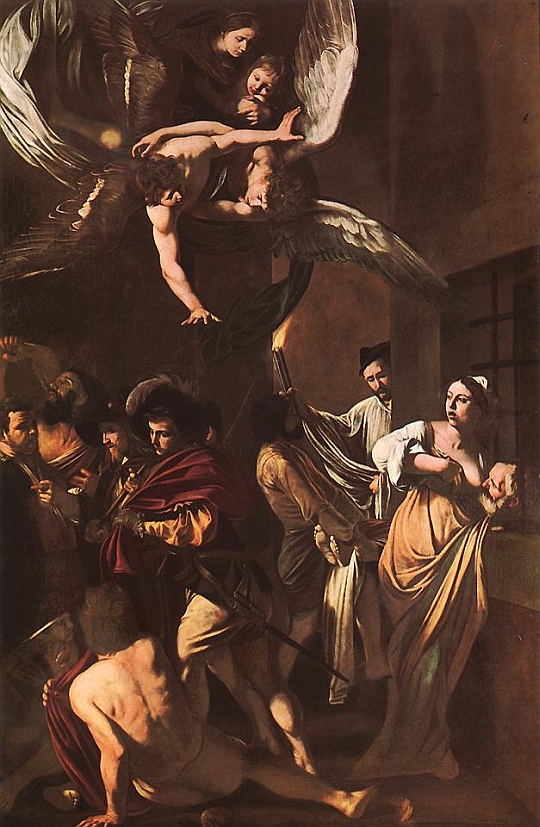
The quality of mercy is not strain’d,
It droppeth as the gentle rain from heaven
Upon the place beneath: it is twice blest;
It blesseth him that gives and him that takes:
‘Tis mightiest in the mightiest: it becomes
The throned monarch better than his crown;
His sceptre shows the force of temporal power,
The attribute to awe and majesty,
Wherein doth sit the dread and fear of kings;
But mercy is above this sceptred sway;
It is enthroned in the hearts of kings,
It is an attribute to God himself;
And earthly power doth then show likest God’s
When mercy seasons justice.
—William Shakespeare, The Merchant of Venice act iv, sc i, ll. 182-95 (1597)
These lines from Shakespeare’s Merchant of Venice surely figure among the most important he ever authored, incorporated into a play which in many ways is among the most problematic. The language is sweet yet sober, it has a curiously Biblical tone. The frame is dramatic, yet Shakespeare presumes to lecture to kings and posterity about how power should be used. I wonder what must be the inspiration for these lines. There are several Biblical passages in which, usually in the prophetic voice, those who hold power are admonished about its use. But one of these texts is the second Psalm, as it was rendered in English before the King James Bible, in Shakespeare’s day, in the Psalter of Archbishop Parker. These words were appointed to be read in the churches of England from 1567 through roughly 1600. Shakespeare would have heard these lines intoned dozens of times:
Of Christ ye see/ A Prophecie/ Thus Dauid spake with vs:
As merueiling/ That earthly king/ Should rage against him thus
Quare fremuerunt: Why fumeth in sight: the Gentils spite,
In fury raging stout?
Why taketh in hond: the people fond,
Uayne thinges to bring about?
The kinges arise: the lordes deuise,
in counsayles mett therto:
Agaynst the Lord: with false accord,
against his Christ they go.
Let vs they say: breake downe their ray,
of all their bondes and cordes:
We will renounce: that they pronounce,
their loores as stately lordes.
But God of might: in heauen so bright,
Shall laugh them all to scorne:
The Lord on hie: shall them defie,
they shall be once forlorne.
Then shall his ire: speake all in fire,
to them agayne therfore:
He shall with threate: their malice beate,
in his displeasure sore.
Yet am I set: a king so great,
on Sion hill full fast:
Though me they kill: yet will that hill,
my lawe and worde outcast.
Gods wordes decreed: I (Christ) wil sprede
for God thus sayd to me/e:
My sonne I say: thou art, this day,
I haue begotten the/e.
Aske thou of me/e: I will geue the/e,
to rule all Gentils londes:
Thou shalt possesse: in suernesse,
the world how wide it stondes.
With iron rod: as mighty God,
all rebels shalt thou bruse:
And breake them all: in pieces small,
as sherdes the potters vse.
Be wise therfore: ye kinges the more,
Receyue ye wisdomes lore:
Ye iudges strong: of right and wrong,
aduise you now before.
The Lorde in feare: your seruice beare,
with dread to him reioyce:
Let rages be: resist not ye,
him serue with ioyfull voyce.
The sonne kisse ye: lest wroth he be,
lose not the way of rest:
For when his ire: is set on fire,
who trust in hym be blest.
And I mean “intoned” in the literal sense. Archbishop Parker commissioned the most brilliant English composer of his age to compose his Psalter, and in 1567, Thomas Tallis delivered a simple but powerful work. Today it is not one of Tallis’s great polyphonic compositions, but the third in this series of nine Psalter tunes which has captured the imagination of the musical world and has become his best known work.
Listen to the nine tunes composed by Thomas Tallis in 1567 for the Psalter of Archbishop Parker, and especially to the third, composed in the Phrygian mode, Psalm 2: Why fum’th in fight the Gentiles spite (it appears at 1:45 in the recording, a performance by the Renaissance Singers). Then listen to the Fantasia composed, in the true high Renaissance style, by Ralph Vaughan Williams on the basis of the third tune in 1910. The performance is by an ad hoc orchestra at Indiana University in Bloomington. The text used by Tallis and Vaughan Williams treats the same subject as this Shakespeare passage: the obligation of those vested with temporal power to behave righteously, to love justice, and to show mercy to their fellow human beings. Lamentably, this lofty message has fallen away from the music, but listen carefully and you will find it.



